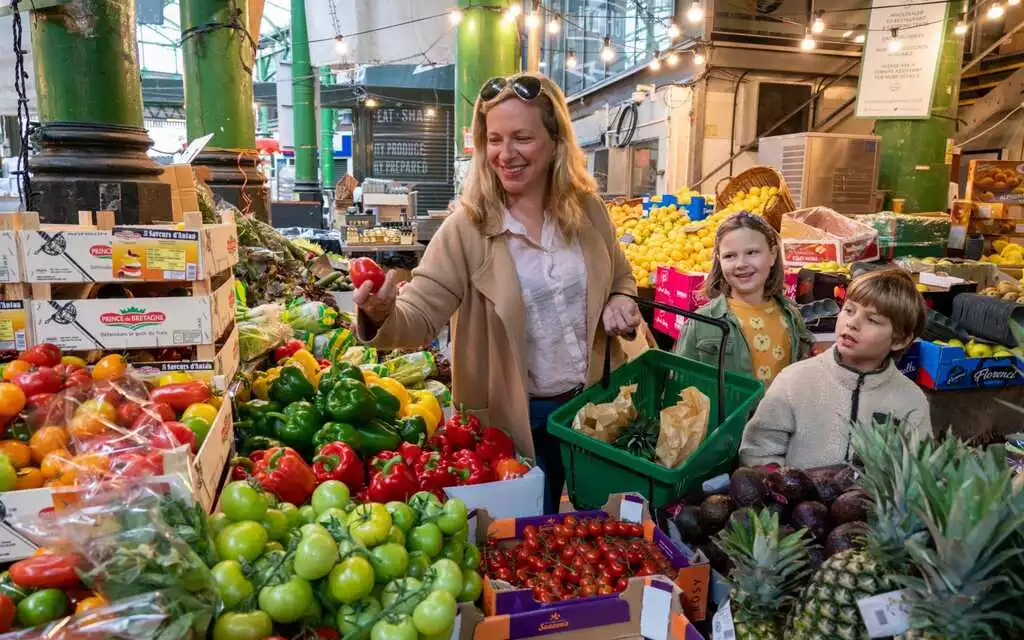Britain already staggering from the biggest rise in food prices since 1977 may have to get habituated to shortages of fresh vegetables as skyrocketing costs and unexpected weather hit domestic production.
British shoppers have encountered a shortage of tomatoes, cucumbers, and peppers in current weeks after disrupted harvests in north Africa declined supply, while inflation caused industry consumers to spend more on less from key markets such as Spain.
Tax office data revealed Britain imported 266,273 tons of vegetables in January 2023 – the least amount for any January since 2010, when the population was around 7% smaller than it is now. Compounding matters, UK production of salad ingredients is expected to hit a record low this year as expensive energy prevents British producers from planting crops in greenhouses.
The tight requirements have aided to push British food price inflation to levels not noticed for almost 50 years. Industry data from market researcher Kantar on Tuesday showed UK grocery price inflation hit a record 17.5% in the four weeks to March 19, emphasizing the issue for policymakers. Many UK food retailers are purchasing less, understanding their consumers cannot afford to spend so much, taking a hit to their profits in the process.
Jack Ward, CEO of the British Growers Association, said there was now a question mark over the future of Britain’s fresh food producers. He added that there’s a limit to how long growers can carry on producing stuff at a loss.
Planters, farming unions, and shop owners warn of more shortages ahead, perhaps soon circulating to other homegrown crops, including leeks, cauliflowers, and carrots because of summer drought and winter frosts.
In March, the UK generally imports about 95% of its tomatoes, but that declines to 40% in June through to September. The cautions come after supermarkets were forced to ration egg sales late last year, while the cost reduction extends to poultry and pig farmers, provoking many to quit the industry.
Apple and pear planters have also said not enough trees are being planted to keep orchards. While the government and supermarkets say they are confident about supply, the salad crisis has shone a light on the precarious state of Britain’s fresh produce industry.
Lee Stiles, secretary of the Lea Valley Growers Association, whose members produce about three-quarters of Britain’s cucumber and sweet pepper crop, said by March about half yet had not been grown, while 10% of the membership ceased trading last year.
There are real risks that empty shelves may become more commonplace.”
Minette Batters-president of the National Farmers Union said.
The union, which anticipates 2023 UK production of salad ingredients to hit its lower level since records began in 1985, had cautioned for months about the risk of excluding agriculture from a government scheme that provides support to firms laboring with energy costs.
Ward said margins in fresh produce were traditionally around 1-2%, but this year they have diverted negatively due to rising energy, fuel, and labor costs. For many retailers, the capability to sidestep shortages will depend on how they fare in sourcing products overseas.
That can be complicated by UK supermarkets’ practice of setting prices for the whole season, while their European Union competitors are more flexible, one grower, who also imports and packs goods, told Reuters.
Britain’s departure from the bloc has also played a part, with advanced paperwork deterring drivers from making the trip to the UK, which could also describe why supermarket shelves in continental Europe remain generally well stored.
Engin Ozcelik, a former industry consumer who now supervises a food store in North London and acts as a consultant to others, said they were purchasing less produce after tomatoes on the vine went from a typical price of 7 pounds ($8.59) a box to 25 pounds a box. He said shoppers who once reined in spending in the final week before payday were now cutting back by the middle of the month.




